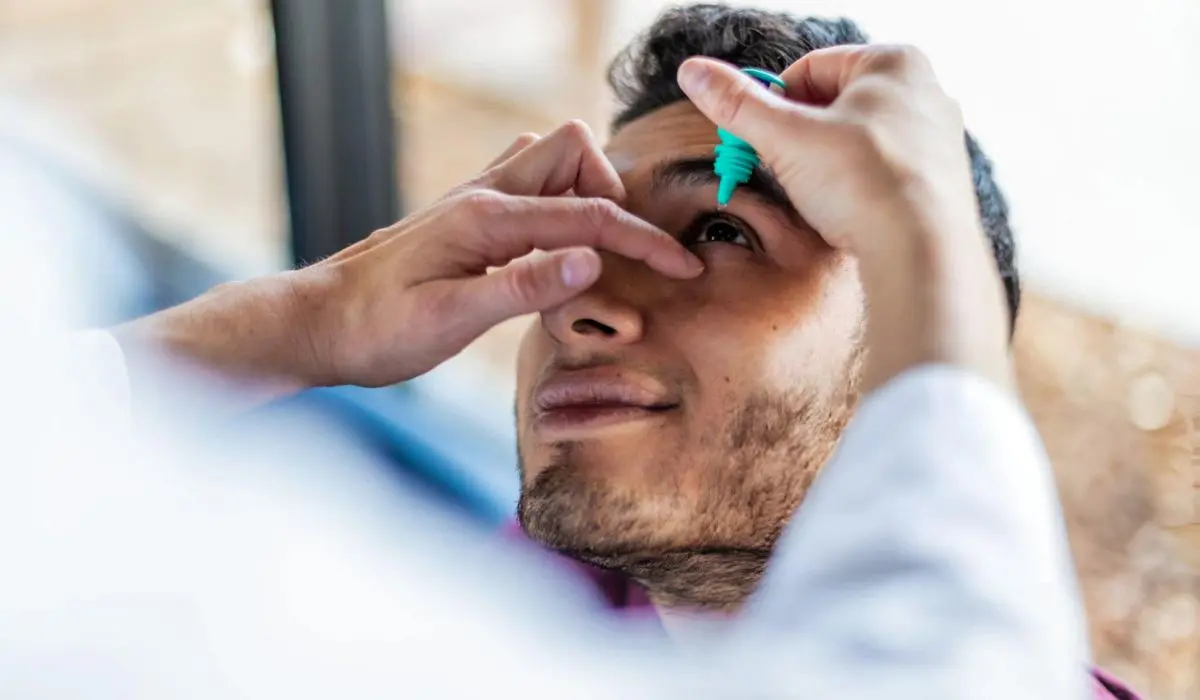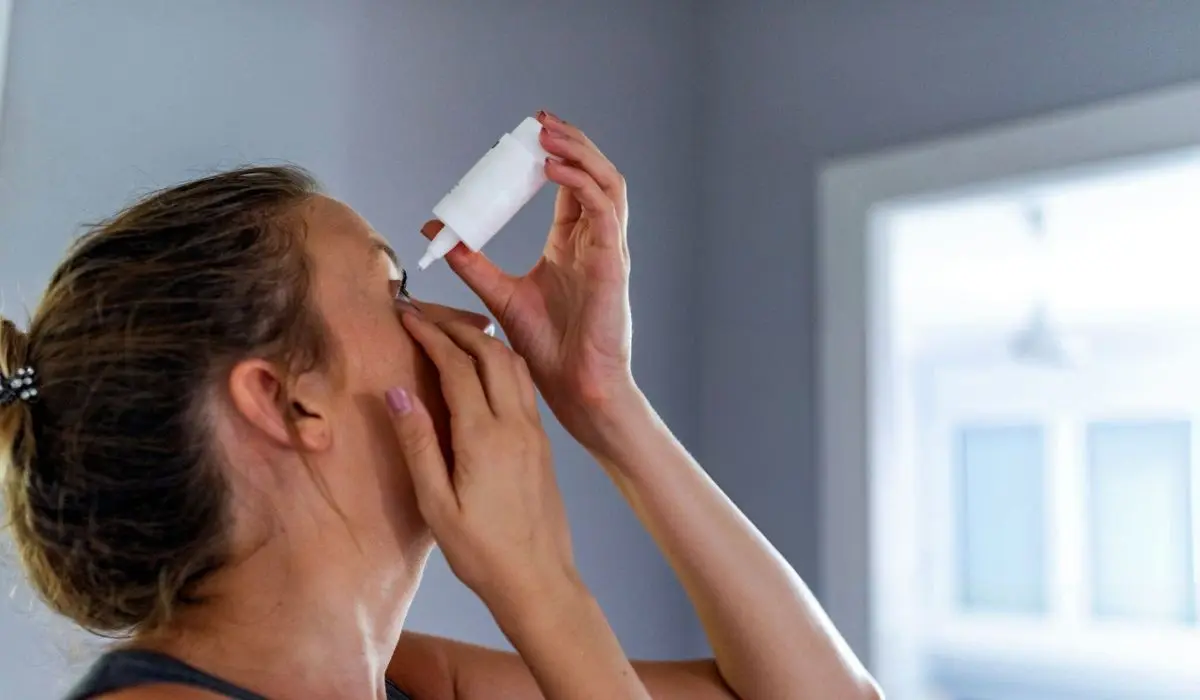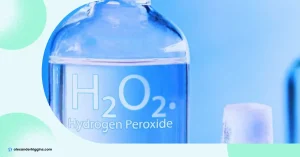We’ve all been there – you experience symptoms like redness, itchiness, or discomfort in your eyes. You reach for that bottle of eye drops tucked away for just such occasions, only to discover the expiration date has passed months or even years ago. Can you use expired eye drops in this situation? Or do you bite the bullet and purchase a new bottle?
The decision may seem trivial, but the reality is that using expired medications carries real risks. Eye drops are particularly vulnerable to contamination and degradation over time. To protect your precious eyes, it’s critical to understand when and why those little liquid vials go bad. In this comprehensive guide, we’ll explore everything you need to know about eye drop expiration and proper usage.
Do Eye Drops Expire? Major Factors
The simple answer is yes, eye drops absolutely do expire. But what causes this expiration, and how long can you reasonably expect them to last? There are several key factors at play:
➰ Manufacturing Date
All eye drop bottles are stamped with an expiration date at the time of manufacturing. This is the “use by” date that indicates how long the medication should remain stable and effective in an unopened state when properly stored.
➰ Formulation
The chemical formulation, preservatives, and ingredients in different eye drop products impact their shelf life. Some may expire faster than others.
➰ Storage Conditions
Proper storage at the recommended temperature prolongs the lifespan of eye drops. Excessive heat or moisture exposure can speed up expiration.
➰ Opening The Bottle
Once that sterile seal is broken and the bottle opened, eye drops are exposed to air, bacteria, and contamination risks. This drastically shortens their usable lifespan.
As a general rule, most eye drop manufacturers recommend discarding bottles within 28 days after opening, sometimes less depending on the specific medication. But the bottom line is clear – do not use eye drops past their printed expiration date, opened or unopened.
Is It Safe To Use Expired Eye Drops?
The resounding advice from medical professionals is that using expired eye drops is simply not worth the risk. There are two main concerns:
1) Contamination And Infection Risk
As eye drops age past their expiration, they become increasingly susceptible to bacterial and microbial contamination, especially once the bottle is opened. Using contaminated drops can lead to eye infections like eye conjunctivitis or keratitis.
2) Reduced Efficacy
The active drug ingredients in eye drops can degrade over time and lose their therapeutic potency. Expired drops may be completely ineffective at treating the intended conditions like eye allergies, glaucoma, infections, etc.
While accidentally using slightly expired drops may not guarantee an adverse event, knowingly using expired eye drops courts unnecessary risks your eyes simply don’t need.
Risk Factors Of Using Expired Eye Drops
So what can happen if you do use expired eye drops against medical advice? The risks and severity depend on a number of factors:

➰ Time Elapsed Since Expiration
Drops just a few weeks past their expiration carry lower but still present risks compared to those expired for 6 months or years. The older, the riskier.
➰ Type of Medication
Certain kinds of eye drops carry higher stakes than others. For example, using expired anti-biotic or glaucoma drops risks born infection or vision damage compared to simple artificial tears.
➰ Eye Condition
Applying expired drops to eyes already compromised by injury, infection or conditions like dry eye amplifies risks of adverse effects.
➰ Contamination Levels
Improper storage, administration technique, or a bottle left open and repeatedly used for months after expiration raises likelihood of heavy microbial contamination.
➰ Overall Health
Those with weakened immune systems or underlying health conditions may face graver consequences from using expired drops compared to others.
Methods To Prevent Eye Drops From Becoming Contaminated
➰ Follow Handling/Storage Instructions
Always Read and follow the specific printed instructions for handling, storage temperatures, and in-use expiration for that particular bottle. Refrigeration may be required for some products.
➰ Watch The Clock After Opening
Mark the date you open a new bottle and strictly observe the in-use expiration, typically 28 days or less depending on the drops.
➰ Proper Administration
Never touch the bottle dropper to your eyes, face, hands or any surface. Keep it sterile. Reseal bottles tightly after each use.
➰ Hand Hygiene
Wash your hands thoroughly before administering each eye drop dose to avoid transferring bacteria or contaminants into the bottle.
➰ Single Use Discarding
If your eye drops come in single-use vials or applicators, never reuse them. Discard each one after a single dose.
➰ Avoid Bottle Transferring
Do not try to combine or transfer remainders from multiple bottles into one “master bottle”. This greatly raises contamination potential.
Sticking to these simple but crucial contamination prevention rules will allow you to maximize safe usage while avoiding preventable eye infections or injuries from microbial overgrowth.
Also Read:- What Is Healthy Eye Pressure? Understanding Optimal Intraocular Pressure
Conclusion
In summary, we’ve covered the definitive facts – eye drops do expire and should never be used past their expiration dates. The risks of using expired or contaminated drops range from ineffective treatment all the way to serious infections or eye injuries. It simply isn’t worth gambling with such precious eye health and vision.
So can you use expired eye drops? Not if you value avoiding unnecessary risks and protecting your eyes for the long haul. When that date on the bottle passes, discard and replace your drops with a fresh new bottle from the pharmacy or retailer.
Having said that, following proper medication storage, handling, and usage guidelines can optimize each bottle’s usable safe span and prevent premature expiration or contamination risks. Squeezing out the maximum safe usable lifespan helps avoid unnecessary cost and waste as well.
Using expired drops may seem harmless, but is it worth risking the health and safety of your precious eyes and eyesight? When in doubt, discard and replace – your eyes will thank you.
References
- CDC (n.d) Preventing the Spread of Conjunctivitis Available Online at: https://www.cdc.gov/conjunctivitis/about/prevention.html
- NIH (n.d) How to Put in Eye Drops Available Online at: https://www.nei.nih.gov/Glaucoma/glaucoma-medicines/how-put-eye-drops





